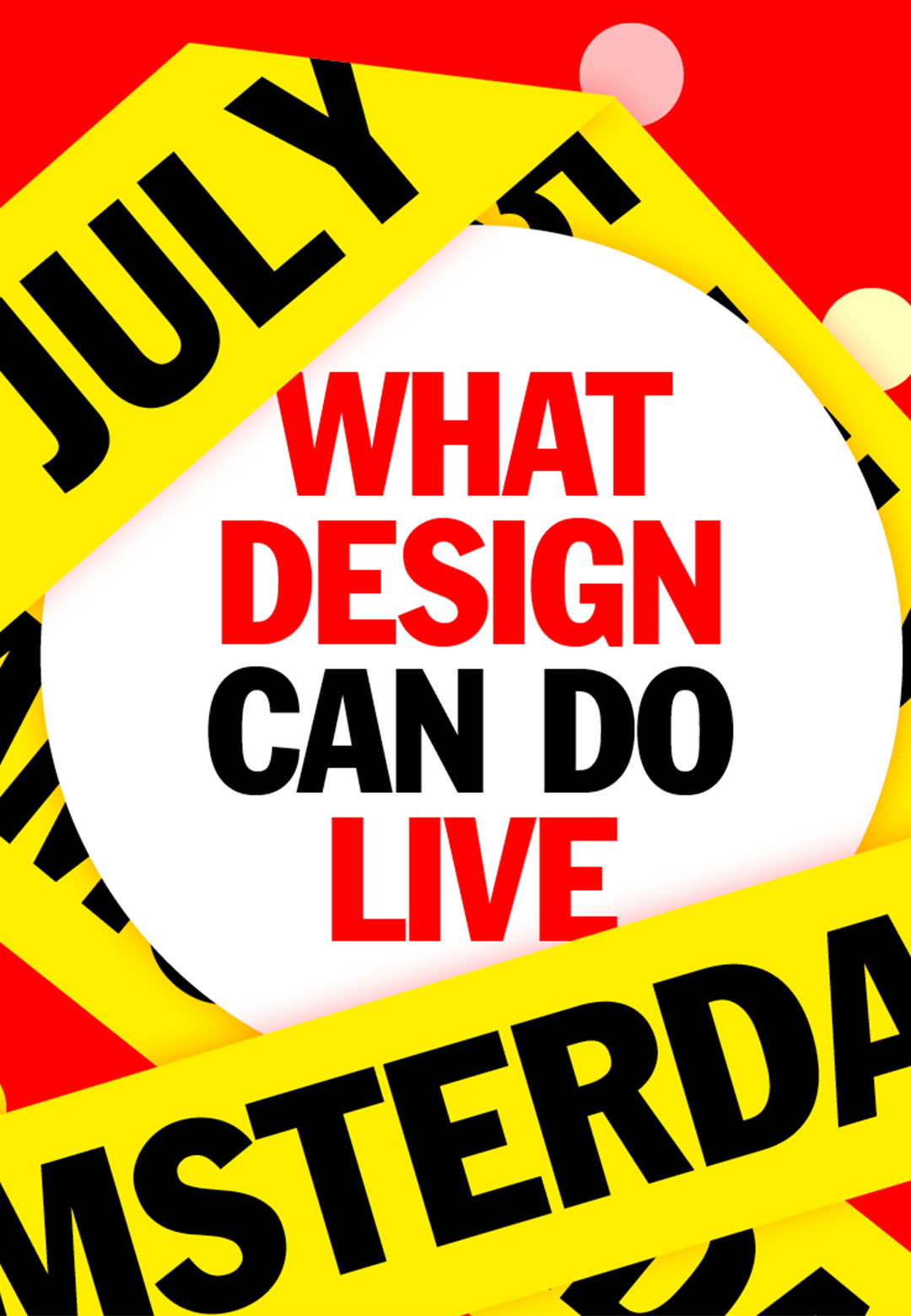The Redesign Everything Challenge, the fifth Climate Action Challenge by What Design Can Do (WDCD) in collaboration with the IKEA foundation, is set to move to the next stage. Setting into motion on July 5, 2024, the 12th edition of WDCD Live travels to Amsterdam, the Netherlands, mustering a myriad of creatives, activists, policymakers and start-ups in a day brimming with talks and workshops that explore design and climate justice. Soon to unfold at the captivating Muziekgebouw, the design event aims to platform rebellious creatives—thinkers, makers, doers—in a series of simmering dialogues.
“WDCD Live 2024 is about uniting changemakers from every corner of creativity and activism to tackle the climate crisis head-on,” explains Richard van der Laken, co-founder and creative director of What Design Can Do. “From fashion designers and architects to bio designers and illustrators, we’re gathering the innovative minds and diverse perspectives necessary for real, lasting impact. There’s incredible strength in that collective effort,” he says.
The Redesign Everything Challenge was launched on January 17, 2024, executed in India until March 13, 2024, by local amplification partners Unbox Cultural Futures and research partners, Quicksand Design Studio. What Design Can Do’s most expansive challenge yet, it invited designers from across the globe to reiterate the urgent need for solutions—circular, inclusive and disruptive—through their creations. As changemakers, designers were urged to reimagine absolutely everything in the face of social, cultural and climate crises looming over the planet. With the intent of further shedding light on this web of varied yet interconnected issues, WDCD Live’s lineup features professionals from disparate walks of life. Renowned names such as fashion designer Bobby Kolade, architect Afaina de Jong, graphic designer Clive Russell, photographer Dirk-Jan Visser, industrial designer René van Geer, bio designer Natsai Audrey Chieza, illustrator Edel Rodriguez, and graphic designer Samar Maakaroun will delve into the tenets of creativity, activism, disruption and making a difference.
Alongside the seminal voices partaking in the design festival, the winners of the Redesign Everything Challenge also contribute to the discourses. Visitors will be invited to participate in immersive workshops and panel discussions on themes such as cultural heritage, community-building and the role of new technologies. The event, with its urgent conversations, stages the most pressing environmental and social hurdles faced by the contemporary world, unearthing the threads that tie them together—an approach buttressed by and lucid in the winning candidates of the challenge.
Designing for climate justice
The first pressing issue brought to the fore in the dynamic conversations is climate change. Although the crisis takes on all geographies, regions and societies, its observed burden seems unequally distributed. Marginalised communities remain more vulnerable to its effects, with compound challenges such as food security and mass displacement charging them—those who pollute the least end up suffering the most. A closer understanding of intersections such as class, gender and race must guide the solutions for climate issues, to subsequently build a better future.
Among the winners of the Redesign Everything Challenge, A Bite of Extinction by Carla Rotenberg aims to revive food diversity surrounding Madrid, Spain, by linking key players of the food industry: scientists, farmers, cooks and consumers. Looop Can by Cheuk Laam Wong addresses the critical problem of period poverty and cultural taboos in water-scarce regions with a cleaning kit equipped with reusable bamboo fabric pads. Economic, social and environmental well-being is central in The Revival, founded by Yayra Agfobah, a community-led sustainable design NGO based in Ghana addressing textile waste through upcycled design.
Ancient knowledge to artificial intelligence
Designers are increasingly drawing inspiration from ancestral ways of building and living. Traditional know-how preserved and practised by circular communities for centuries experiences a steady revival in the modern design community. This wave rises in conjunction with one of artificial intelligence, virtual and augmented reality as well as data-driven spheres. How do the two approaches intersect and fuel each other?
Long-lost vernacular building techniques such as wind catchers and solar chimneys are harnessed against air pollution in Delhi homes with BreatheEasy conceived by Architecture for Dialogue. Electric Skin by Paige Perillat Piratoine redefines an entire industry by ‘cultivating’ electronics from bacteria that naturally produce electrical proteins. Suat Batuhan Esirger devises ForestGuard, a technology that detects forest fires within its first 15 minutes using a sensory monitor, IoT technology and machine learning to identify and track smoke.
Designing for circular transition
Designers with an intent to change how the economy works, pave ways towards circular economies and models of production. Thai year’s programme is dedicated to the coming generation of creatives who are actively working towards a future that is regenerative and restorative.
Germinatorium by Daniel Caballero is a gazebo tent aimed at restoring native plant population in and around São Paulo, housing a nomadic nursery and community educational programmes. Reef Rocket by ReefCycle is a growable, modular, bio-cement reef structure, a more sustainable alternative to industrial cement. Material possibilities are further pushed with beads and scalable bio-embellishments by Cellsense, healing microalgae and bacterial cellulose, Biosoothe by Namita Bhatnagar, and Celium™ by POLYBION, a customisable cellulose bio-textile produced by feeding bacteria fruit waste.
During the upcoming event in Amsterdam, the 11 winners of the global Redesign Everything Challenge will present their projects, followed by a special design exhibition and networking session. Apart from the stimulating dialogues, the day-long event will also include musical performances and interactive breakout sessions.






 Sign in with email
Sign in with email










What do you think?